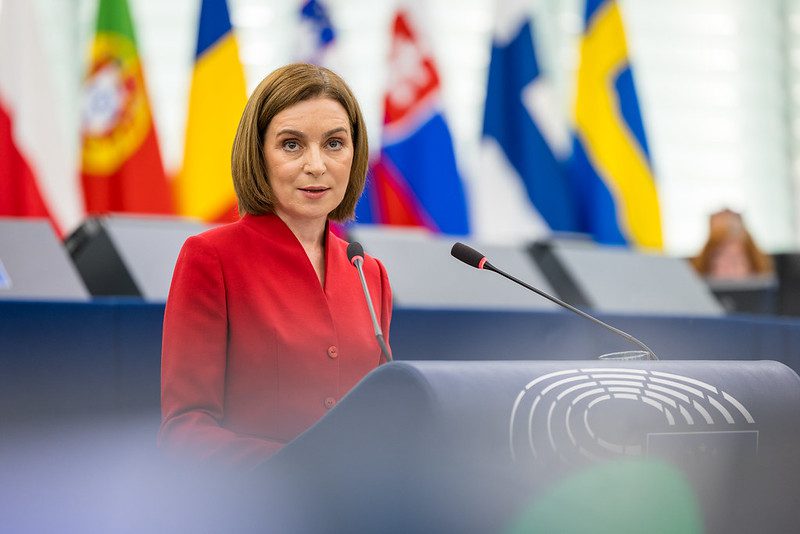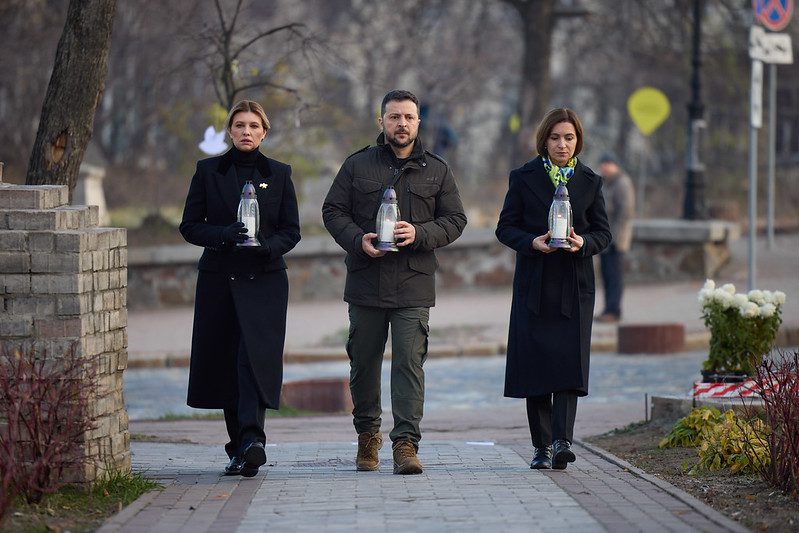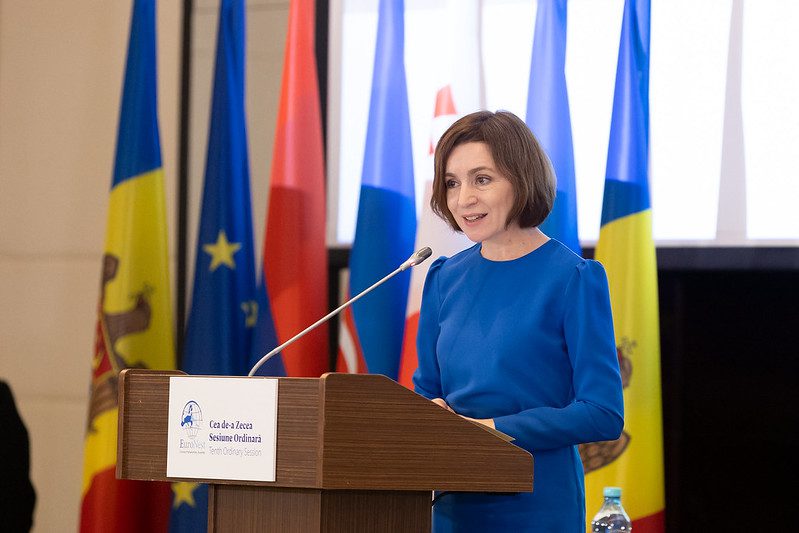Although Moldova is a small country, its elections were closely followed by millions of Europeans while Russia tried to interfere in the process.
Despite these efforts, Maia Sandu’s Party of Action and Solidarity (PAS) secured a decisive victory with over 50 percent of the votes, giving it an outright majority to form the new government. Yet the story is less about PAS’s triumph rather about Russia’s attempts to influence the result.
Before Sunday, President Maia Sandu warned that Russia was behind several cyber attacks aimed at disrupting the election. Indeed, throughout election day, the Electoral Commission (CEC) was forced to temporarily shutdown the official site, counting more than 16 million simultaneous sessions. Other cyberattacks were recorded, though the infrastructure remained intact. Yet Russia did not stop there: in-person troubles were recorded in Moldova’s embassies abroad. Alicante (Spain), Rome (Italy), and Asheville (U.S.) embassies were forced to temporarily evacuate due to fake bomb threats, in an attempt to intimidate Moldovans from voting. Similarly to the Romanian elections, the Moldova diaspora leans towards the pro-EU vote, in this case, for the PAS party.
Despite all their efforts, Russia could not take advantage of the situation in its historic strongholds. In breakaway republic Transnistria, the pro-Russian party “Patriotic Electoral Block” claimed a victory, but 30 percent still voted for the pro-European party PAS. Even worse, this is where Russia has historically looked to influence locals, due to the many ethnic Russians who reside there. Several reports from Moldova recorded that there was an unprecedented influx of vehicles storming towards Transnistria on election day, including another bomb threat. All of this, however, was insufficient to lead voters to the polls, as the region recorded one of the lowest voter turnouts across Moldova.
Two other regions showed pro-Russian tendencies, one in the North and one in the South. In the South, Gaugauzia has consistently leaned towards an anti-West position, with ethnic Bulgarians dominating local politics. The region also voted against EU integration in last year’s referendum. In the North, the picture is less clear. A mix of ethnic groups and the long distance from the capital, Chisinau, appeared to have fuelled discontent with Sandu’s presidency, pushing many voters toward the pro-Russian bloc.
The outcome was catastrophic for Vladimir Putin’s Russia. Russia is estimated to have spent around €400 million in attempting to influence the elections. Reports also claimed Moscow sought to bribe hundreds of thousands of Moldovans into voting for the pro-Russian bloc.

Image: President Maia Sandu – EPP Group
Not only did the pro-Russian party lose, but it also lacked the numbers to pursue a coalition. Since Maia Sandu’s election as president in 2020, Putin and his allies have tried to influence several key decisions, including elections and referendums, none of which have yielded any return on investment. A protest was organised to challenge the election result, but it drew only about 300 participants, who dispersed within minutes.
Moldova’s geopolitical position has become increasingly important to Russia in recent years. Moscow has sought to influence the country in the broader context of its invasion of Ukraine. Control of Moldova, or at least its capital, could have opened a new front that Ukraine would struggle to defend. Yet despite repeated interference and heavy spending, voters ultimately chose a pro-European course.
If anything, these elections have taught Europe that defending democracy is no easy task. Even small countries can withstand pressure. Just two days before the vote the CEC banned two pro-Russian parties: The Heart of Moldova and Moldova Mare. While Russian-friendly influencers claimed that this was censorship, it is important to remember that these parties are not “just” opposition parties. Both were accused of illegal financing, undeclared foreign funds, and for Moldova Mare, direct ties to KGB (Russian intelligence) officials.
Russia did not stop at bribery, cyberattacks and fake bomb threats: it also incited violent conduct for its supporters. Several “activists” were arrested by security forces as they sought to provoke unrest in Chisinau. As in the Romanian elections, Moscow spread disinformation through content on Telegram and TikTok, as well as accusing the EU of foreign interference. It also paid influencers who would claim that these elections were rigged and unfair, in an effort to create a climate of unrest.

Image: President Zelenskyy and President Sandu honouring the memory of those killed during the Revolution of Dignity – President of Ukraine
For President Maia Sandu, the victory was a clear sign: “Throughout this campaign, the Kremlin sought to divide us, to undermine our trust — in the state, in our institutions, in one another, and in our ability to resist.” She was not alone in celebrating, as Ukrainian President Zelenskyy insisted on the importance of the result: “These elections showed that Russia’s destabilising activities are losing, while Moldova in Europe is winning”.
Prime Minister Keir Starmer also congratulated President Sandu: “despite Russia’s attempts to undermine Moldova’s democracy, the people of Moldova have chosen a path of freedom”.
France, Germany and Poland also issued a joint statement, which read the following: “Despite various forms of manipulative interference to destabilise the country, Moldovan voters have shown once again that they will not allow their future in peace and freedom to be taken away from them.”
Featured Image via Parlamentul Republicii Moldova




